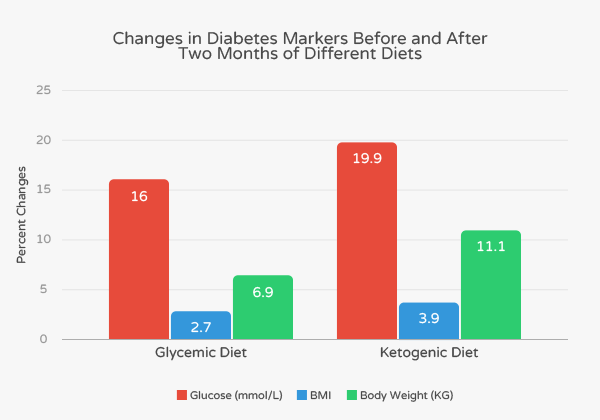
Each rat received saline and both doses of insulin, with not less than 5 d between injections, in a counterbalanced sequence. Clinical Significance The popular belief that high-fat diets cause obesity and several other diseases such as coronary heart disease, diabetes, and cancer has not been observed in recent epidemiological studies. Adipocytokine changes caused by low-carbohydrate compared to conventional diets in obesity. Abstract The treatment of obesity and cardiovascular diseases is one of the most difficult and important challenges nowadays. Overweight and diabetes prevention: Is a low-carbohydrate—high-fat diet recommendable? Long term effects of ketogenic diet in obese subjects with high cholesterol level. These data indicate that reduced insulin sensitivity observed in KD fed mice is mainly mediated by blunted hepatic insulin sensitivity. Dietary carbohydrate restriction as the first approach in diabetes management: Critical review and evidence base. Significantly, over half of the patients in this trial were able to stop or decrease their diabetic medications after switching to the VLCKD intervention.
Glycogen stores deplete, forcing the body to go through certain metabolic changes. Understanding the core principles of a ‘modified ketogenic diet’: a UK and Ireland perspective. Departments of 1 Internal Medicine and. Diabetes Care. Extra-hepatic tissues are able to undergo ketolysis and convert ketones back to acetyl-CoA which enters the TCA cycle and is used by the mitochondria to generate ATP for energy. All glucose and insulin data were analyzed by a two-way ANOVA with repeated-measures and Bonferroni tests for post hoc analyses. This diet has a diuretic effect, and some early weight loss is due to water weight loss followed by a fat loss. Intraperitoneal administration of NAPE, to achieve plasma concentrations similar to those we observed in the KD-fed mice, has been shown to decrease food intake in a dose-dependent manner through direct interaction in the central nervous system of mice and rats without inducing taste aversion
To assess glucose sensitivity, we next challenged animals with an i. The severity of the impairment correlates linearly with the degree of lipid oxidation, with KD fed animals being most impaired and HFD fed animals lying in between. Hepatic fibroblast growth factor 21 is regulated by PPARalpha and is a key mediator of hepatic lipid metabolism in ketotic states. Close monitoring of renal functions while on a ketogenic diet is imperative, and the transition from a ketogenic diet to a standard diet should be gradual and well controlled. Rats were 8 wk old upon arrival to the laboratory. Journal of hepatology 12, —
